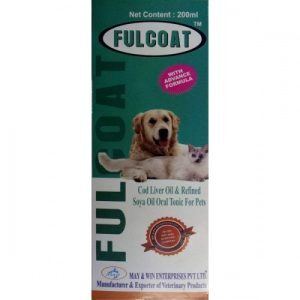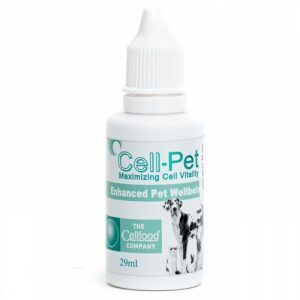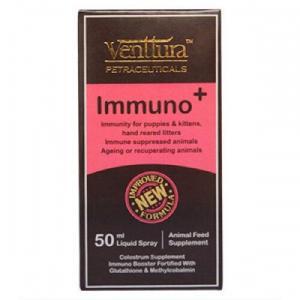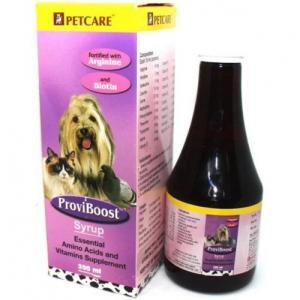Table of Contents
Depression in cats and dogs can manifest in various ways and is often triggered by significant changes or disruptions in their environment or routine. Pet owners must seek veterinary advice and provide a supportive, loving environment to help their furry companions recover from depression.
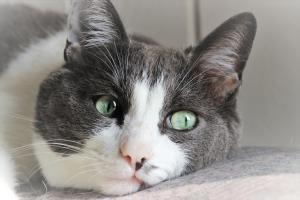
Causes of Pet Depression
Treating depression in pets is crucial because it can significantly impact their overall well-being and quality of life. We can help pets regain their happiness, prevent potential health complications, and strengthen the bond between humans and their animal companions by addressing their emotional needs and providing appropriate care. To know why depression in dogs and cats happens and how to help it, the owner should know the cause of depression.
What can cause depression in cats and dogs?
It is important to identify the underlying causes of depression in cats and dogs to provide them with appropriate care, support, and intervention. Indeed, there are several causes of pet depression.
Grief
Like humans, pets can experience grief when they lose a companion, another pet, or a human family member. The loss can lead to a sense of sadness and depression. For example, depression in cats and dogs after other pet died, depression in cats and dogs after owner dies.
Physical Illness
Pets suffering from chronic pain or illness may exhibit signs of depression. The discomfort they experience can affect their mood and overall well-being—for example, depression in cats and dogs after surgery.
Fear
Traumatic experiences or constant exposure to fearful situations can contribute to pet depression. Fear-inducing events such as loud noises, abuse, or past trauma can leave lasting emotional scars.
Separation Anxiety
Pets that become overly attached to their owners may develop separation anxiety when left alone. This anxiety can lead to depression as they feel distressed and lonely in the absence of their beloved human.
Life Changes
Significant changes in a pet’s environment or routine, such as moving to a new home, depression in dogs after a new baby (postnatal depression in cats and dogs), the arrival of a new family member, or a change in the household dynamics, can trigger depression in pets.
Other Factors
Various other factors can contribute to pet depression, including social isolation, lack of mental stimulation, neglect, or sudden disruption in their daily routine.
Symptoms of Depression in Cats and Dogs
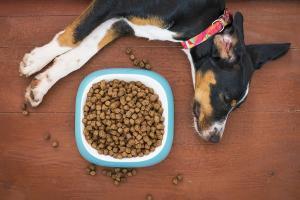
Here are some common signs of central nervous system depression in cats and dogs:
- Changes in Appetite: Can depression cause diarrhea or vomiting in dogs? Depressed pets may exhibit a loss of appetite or, in some cases, an increase in appetite. That’s why dogs with depression may not eat or eat significantly less or show disinterest in their food altogether. That’s why depression and weight loss in cats and dogs are closely connected.
- Sleep Disorders: Can depression cause seizures in dogs? Pets experiencing depression may have disruptions in their sleep patterns. They might sleep excessively or, conversely, have difficulty sleeping and experience insomnia.
- Loss of Interest in Playing or Walking: Depressed cats and dogs often lose interest in previously enjoyable activities. They may no longer show enthusiasm for playing with toys, walking, or engaging in their usual exercise routines. Lethargy and depression in dogs are also closely connected.
- Excessive Licking: Some pets may resort to excessive licking or grooming behaviors to cope with their emotional distress. This can lead to hair loss or skin irritations in affected areas.
- Hiding: Depressed pets may withdraw and spend more time hiding or seeking seclusion. They may retreat to secluded spots in the house or seek shelter where they typically don’t hide.
It’s important to note that these physical symptoms of depression in cats and dogs can also indicate other underlying health conditions, so it is crucial to consult a veterinarian to know early signs of depression and anxiety in cats and dogs, how to identify depression in cats and dogs, for an accurate diagnosis and appropriate treatment.
How to Help Your Pet with Depression
First, it’s important to provide a stable and nurturing environment, maintain a consistent routine, offer plenty of social interaction, and provide a balanced diet. Always consult a veterinarian to rule out any underlying medical conditions and for guidance on the best approach to help your pet with depression.
Here are some ways to help your pet with depression:
Exercising
Regular exercise is beneficial for both physical and mental well-being. Engage your pet in regular physical activities like walks, play sessions, or interactive games. Exercise helps release endorphins, which can improve their mood and overall mental state.
Fun Activities
Engage your pet in stimulating and enjoyable activities that they love. This could include puzzle toys, treat-dispensing toys, interactive playtime, or training sessions. These activities can provide mental stimulation, promote positive emotions, and strengthen your relationship with your pet.
Consider Getting Another Pet
In some cases, introducing a compatible companion pet can help alleviate depression, especially if the primary cause is loneliness or grief. However, it’s crucial to carefully assess the dynamics, temperament, and needs of both existing and potential pets before making this decision. Consult a veterinarian or animal behaviorist to determine if getting another pet is the right choice for your current pet’s well-being.
Antidepressants for Cats and Dogs
How to treat depression in cats and dogs? Let’s check the best supplements for depression in cats and dogs.
Administering antidepressants for cats and dogs is important to improve their quality of life, address chemical imbalances, facilitate behavioral therapy, and prevent complications associated with untreated or severe depression. Veterinary guidance is crucial to determine the right cures for depression in cats and dogs, dosage, and duration of treatment for each pet.
FulCoat (Cod Liver Oil, Soya Oil), 200ml
FulCoat is a pet supplement available in a 200ml bottle that contains a blend of cod liver oil and soya oil. The active ingredients in FulCoat, cod liver oil, and soya oil provide essential nutrients and beneficial fatty acids for pets. FulCoat is typically used to promote healthy skin and coat condition in cats and dogs. It can be beneficial for pets with dry skin, dull coats, or excessive shedding. It may also help alleviate itching and reduce inflammation associated with certain skin conditions.
Ingredients
Cod liver oil is rich in omega-3 fatty acids, including eicosapentaenoic acid (EPA) and docosahexaenoic acid (DHA). These omega-3 fatty acids have anti-inflammatory properties and can support overall health, including a healthy coat and skin.
Soya oil is a source of omega-6 fatty acids, such as linoleic acid, important for maintaining healthy skin and a glossy coat in pets.
Benefits
The benefits of FulCoat include improving coat texture and shine, reducing dryness and flakiness of the skin, and supporting overall skin health. The omega-3 and omega-6 fatty acids in FulCoat help maintain a healthy skin barrier, reduce inflammation, and provide essential nutrients for optimal coat condition.
Cell-Pet Immune Booster (Oxygen, Minerals, Enzymes And Amino Acids), 10ml
Cell-Pet Immune Booster is a supplement available in a 10ml bottle that contains a combination of oxygen, minerals, enzymes, and amino acids. These active ingredients support pets’ immune system and overall health. Cell-Pet Immune Booster is typically used to support pets’ immune system, especially during increased stress, illness, or weakened immunity. It may be beneficial for pets with compromised immune function or those recovering from illness, depression, or surgery.
Ingredients
The oxygen component of Cell-Pet Immune Booster is stabilized oxygen, believed to enhance oxygenation and cellular metabolism in the body. This can support immune function and help maintain optimal health.
The supplement also contains a blend of minerals, enzymes, and amino acids essential for various physiological processes in the body. These nutrients support immune system function, cellular repair, and overall well-being.
Benefits
The benefits of Cell-Pet Immune Booster include supporting immune system function, promoting cellular health and repair, and providing essential nutrients for overall well-being. Supporting the immune system may enhance the pet’s ability to fight off infections, recover from illness, and maintain optimal health.
Immuno Plus (Vitamins, Zinc, Magnese, Magnesium, Colostrum, Niacinamide), 50ml
Immuno Plus is a supplement available in a 50ml bottle that contains a combination of vitamins, minerals (zinc, manganese, magnesium), colostrum, and niacinamide. These active ingredients support immune function and overall health in pets. Immuno Plus is typically used to support immune system health in pets, especially during times of increased stress, illness or when the immune system needs a boost. It may be beneficial for pets with weakened immunity, recovering from illness, or facing immune-related challenges.
Ingredients
The vitamins included in Immuno Plus are essential for various bodily functions, including immune system regulation. They provide crucial antioxidants that help protect cells from damage and support the body’s natural defense mechanisms.
Minerals such as zinc, manganese, and magnesium are vital for proper immune system function and overall health. These minerals play a role in enzyme function, cellular metabolism, and immune response regulation.
Colostrum, a nutrient-rich substance produced by mammals shortly after giving birth, contains antibodies and other immune factors that can support immune function and help provide passive immunity.
Niacinamide, a form of vitamin B3, is known for its immune-supporting properties. It is involved in energy production and plays a role in maintaining healthy skin and coat.
Benefits
The benefits of Immuno Plus include supporting immune system function, providing essential nutrients for overall health, and enhancing the pet’s ability to resist infections and recover from illness. It may also contribute to improved skin and coat condition.
ProviBoost Syrup (Arginine, Histidine, Isoleucine, Leucine, Lysine, Vitamins), 200ml
ProviBoost Syrup is a supplement available in a 200ml bottle that contains a combination of amino acids (arginine, histidine, isoleucine, leucine, lysine) and vitamins. These active ingredients are formulated to support overall health and provide essential nutrients for pets. ProviBoost Syrup is typically used to provide nutritional support for pets, especially during periods of depression, increased metabolic demand, growth, recovery from illness, or to support overall well-being. It can be beneficial for pets with nutrient deficiencies, weakened immune systems, or those needing additional nutritional support.
Ingredients
The amino acids in ProviBoost Syrup, including arginine, histidine, isoleucine, leucine, and lysine, are building blocks of proteins and play crucial roles in various physiological processes. They are involved in protein synthesis, immune system function, tissue repair, and overall growth and development.
The supplement also includes a vitamin blend essential for optimal pet health. Vitamins provide vital antioxidants, support energy production, help maintain healthy skin and coat, and contribute to proper immune system function.
Benefits
The benefits of ProviBoost Syrup include providing essential amino acids and vitamins for proper growth, development, immune system function, and overall health. It may help support the pet’s energy levels, enhance muscle repair and recovery, and contribute to healthy skin and coat.
The dosage and administration of these products may vary depending on the pet’s size, weight, and specific needs. It is important to follow the instructions provided by the manufacturer or consult a veterinarian for the appropriate dosage.
As with any supplement or medication, it is advisable to consult a veterinarian before starting or adjusting the dosage. They can assess your pet’s needs and provide recommendations for optimal results.
FAQ
Can Depression Cause Cancer in Cats and Dogs?
Depression itself does not directly cause cancer in cats and dogs. However, depression and chronic stress can weaken the immune system, making pets more susceptible to certain illnesses and potentially impacting their overall health. It is important to address depression in pets to support their well-being and overall immune function.
Can Prednisone Cause Depression in Pets?
Prednisone is a corticosteroid medication used in veterinary medicine to treat various conditions. While it can have side effects, including changes in behavior and mood, it is less likely to cause depression in pets. However, individual responses to medications can vary, and in some cases, pets may exhibit changes in mood or behavior while on prednisone. It is best to consult a veterinarian for guidance and to monitor any potential effects of prednisone on your pet.
Can Steroids Cause Depression in Cats and Dogs?
Steroids, including corticosteroids such as prednisone, can potentially have side effects on mood and behavior in cats and dogs. While depression is not a commonly reported side effect, some pets may experience changes in mood, restlessness, or anxiety while on steroid medications. It is important to work closely with a veterinarian when administering steroids to monitor any behavioral changes and adjust the dosage or treatment plan if necessary.
Olivia Bennet is a veterinarian who has worked in a veterinary clinic for many years. She specializes in the diagnosis, disease prevention, and treatment of not only cute kittens and puppies but also large farm animals. Olivia loves animals, cares about them, and wants to help you know more about your pets.


